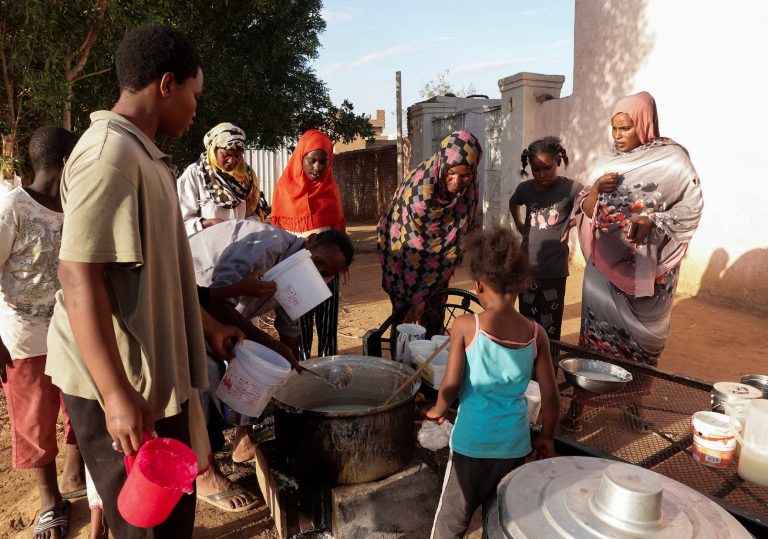Botswana has said that the emerging B.1.1.529 variant, also known as Omicron, of SARS-CoV-2, the virus that causes Coronavirus Disease 2019 (COVID-19), was first detected in four fully vaccinated diplomats from an undisclosed country.
In a media release published by the country’s COVID-19 Task Force on the Government of Botswana’s verified Twitter account on Nov. 25, the state noted that the strain was first discovered on Nov. 22 “among travellers who tested SARS-COV-2 positive on routine pre-travel testing.”
“The preliminary report revealed that all the four had been completely vaccinated for COVID-19.”
The government also stated that reports that the cases were associated with HIV positive individuals were false.
However, just one day later on Nov. 26, the Botswana government released a second press release published by the Ministry of Health and Wellness on Twitter, which severely contradicts the COVID-19 Task Force’s timeline.
Success
You are now signed up for our newsletter
Success
Check your email to complete sign up
“This new virus was detected on four foreign nationals who had entered Botswana on the 7th November 2021, on a diplomatic mission. The quartet tested positive for COVID-19 on the 11th November 2021 as they were preparing to return.”
“Further genomic sequencing that was conducted on the samples confirmed the virus as B. 1.1.529 on 24 November 2021.”
The release noted that the diplomats had “since left the country” and claimed that all contact traces associated with the four individuals had both tested negative for SARS-CoV-2 and displayed no symptoms.
RELATED:
- Study Finds COVID Spike Protein Created in Vaccines ‘Hijacking’ Human Body DNA Repair and Adaptive Immune
- This Country Reached 100% Vaccination in April. Now, COVID Is Cancelling Christmas
- Australia Begins COVID Quarantine Camps, Total 24-Hour Lockdowns for Positives and Contact Traces
Botswana was reportedly the first country to identify the presence of the variant, with neighboring South Africa following. The mutation was also recently found in Hong Kong.
London-based virologist Tom Peacock of the Imperial Department of Infectious Disease appears to be one of the first to speak of the strain starting on Nov. 23 on Twitter and Github.
Tulio de Oliveira, Director of South Africa’s Centre for Epidemic Response and Innovation, claimed the new Omicron variant “now dominates all infections” found since early November.
The Fred Hutch Bloom Lab theorized that the new variant’s extensive spike protein mutations would impact the efficacy of monoclonal and polyclonal antibody treatments such as Regeneron.
World responses to the new variant have been relatively extreme. While countries such as Canada and the United States implemented travel bans against several African countries, Belgium Prime Minister Alexander De Croo was quoted by Russian state propaganda outlet RT as sensationalizing the new variant as: “You could say that this is Covid-21 instead of Covid-19: it is three times more infectious than the original virus,” in comments at a press conference.
On Nov. 26, Belgium plunged itself into a new tier of pandemic measures, making working from home mandatory four days a week, expanding mask mandates, compulsory testing of students, an 11 p.m. curfew on restaurants, bars, and Christmas markets, the closure of nightclubs and concerts, and a prohibition on private parties, according to Politico.
The outlet says Belgium, a country of slightly more than 11.5 million citizens, has 669 COVID patients in the ICU.
On the other hand, according to the UK’s Evening Standard, Chairman of the South African Medical Association, Angelique Coetzee called the imposition of travel bans a “premature” and “hasty” in comments to the BBC.
“I would understand if it was two weeks later and we know much more about this viral infection that is going around, or this mutation, but for now, it is like a storm in a teacup.”
She added,“From us as medical practitioners, we picked up, last week, the different clinical pictures, we looked at the advisory committees and so far what we have seen is very mild cases. [I’m] not sure why we are all up in arms.”
“We know there are a lot of mutations but no-one can tell us at this stage if it means something, or if it is just going to fade away. We just don’t know.”

















